AMADEUS to accelerate drug discovery
AMADEUS, a breakthrough technological platform developed by the renowned chemist Alexander Dömling at Palacký University Olomouc thanks to a prestigious grant funded by the European Research Council (ERC) with a budget of €3.4 million, is intended to make drug discovery more sustainable, cost-effective and time efficient. The AMADEUS platform aims to revolutionize the process of drug discovery and optimization by enabling autonomous, AI-driven, highly miniaturized automation for compound identification.
The five-year project entitled Automated, Miniaturized and Accelerated Pharmaceutical Discovery (AMADEUS) aims to accelerate the development of new drugs, reduce the financial costs and environmental burden of the process and increase its safety. The use of miniaturization and automation is proving to be the right approach.
“Using current tools, such as artificial intelligence or miniaturization, brings new possibilities to research. I am glad that we are among the universities that, thanks to cutting-edge research, are helping to find ways to save time and money in such important processes as the development of new drugs. Success in this area will have a clear societal impact,” said Martin Procházka, Rector of Palacký University.
Unlike the current industry practices that rely on larger-scale synthesis, researchers will operate at 100,000 times smaller scales.
“We will design and validate a comprehensive AMADEUS technology platform, which will be capable of synthesizing thousands of small molecules per day in nano- or picolitre-scale volumes based on hundreds of chemical reactions that we can effectively investigate and improve their properties using artificial intelligence. Thanks to this reduction, we will also significantly reduce the amount of toxic waste, hence the increase in sustainability, and speed up the whole drug discovery process. My ambition is to fundamentally change the early phase of drug discovery, which has been used in pharmaceutical companies around the world for more than half a century,” said Dömling, who works at the Czech Advanced Technology and Research Institute (CATRIN) of Palacký University.
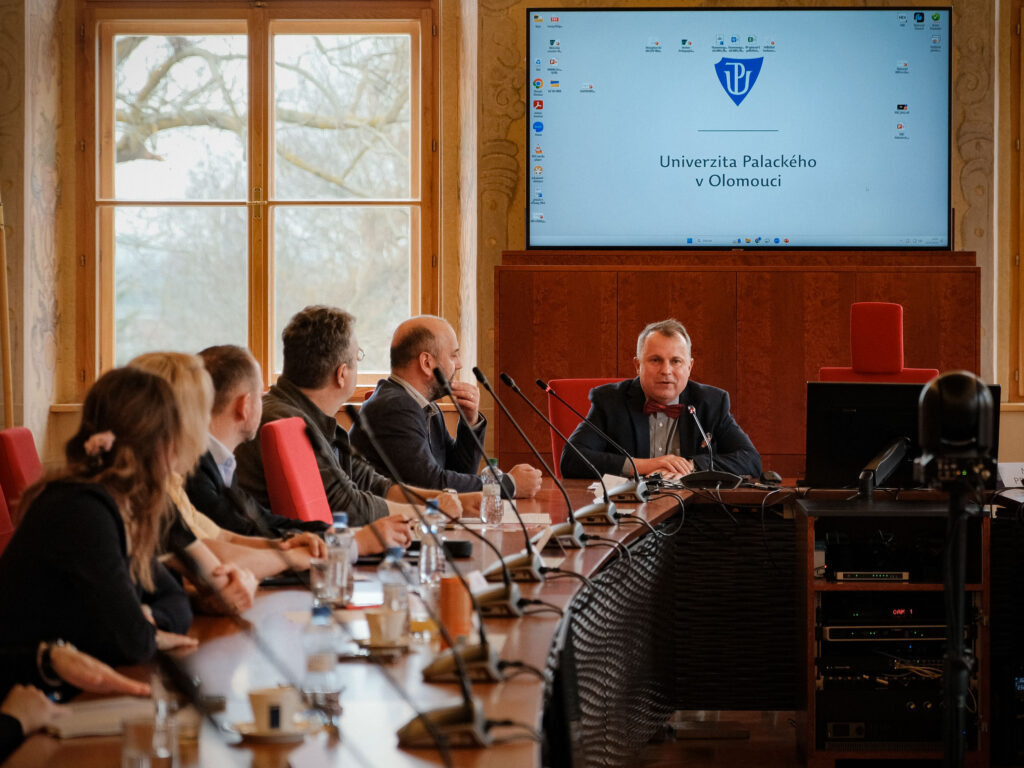
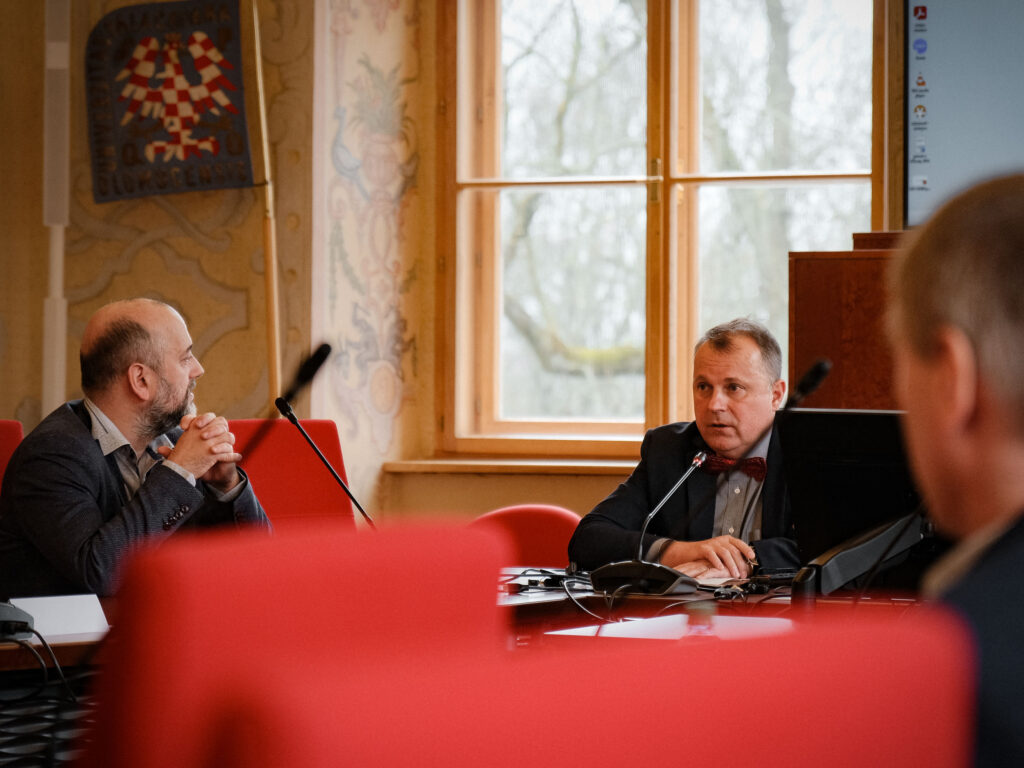
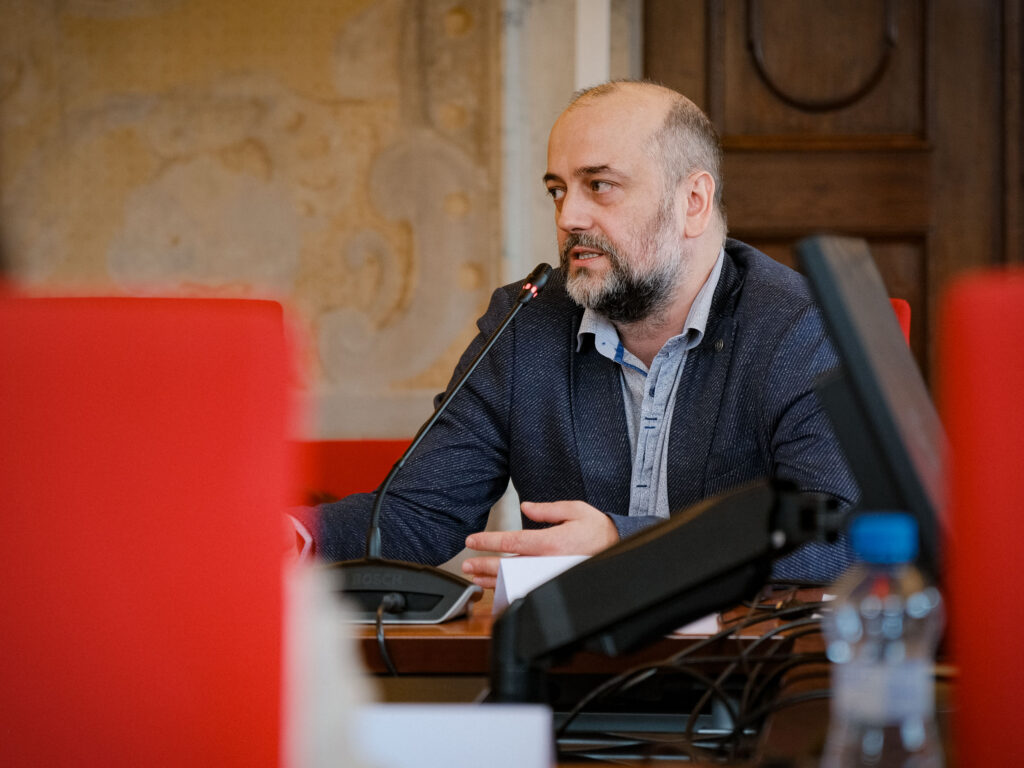
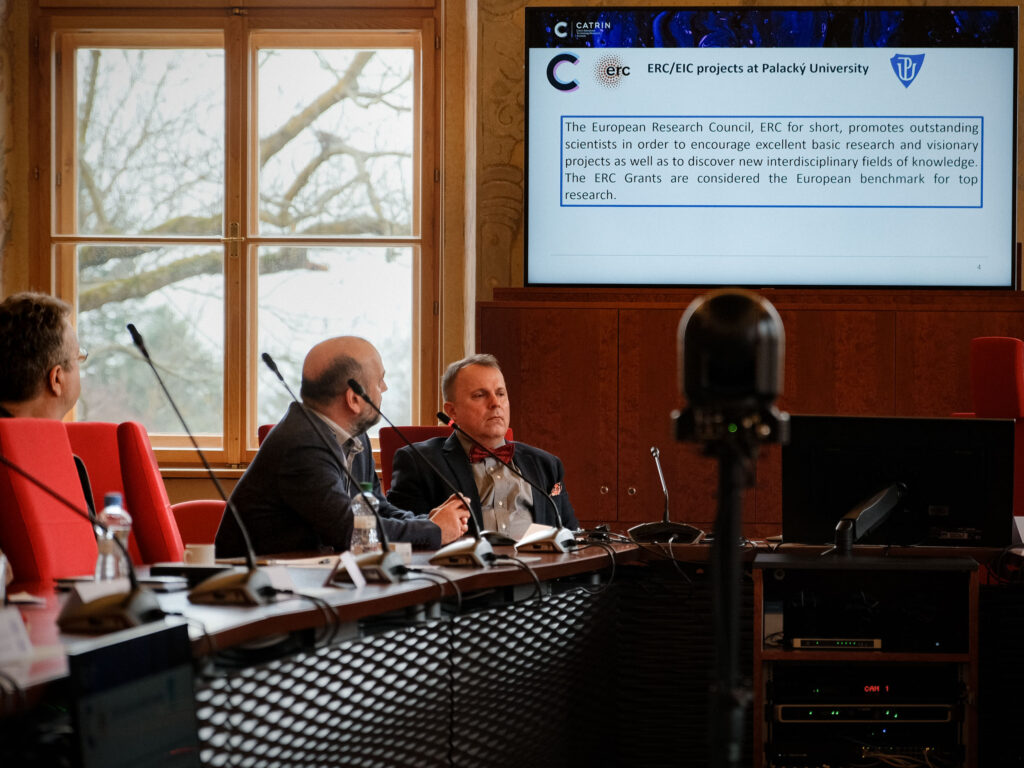
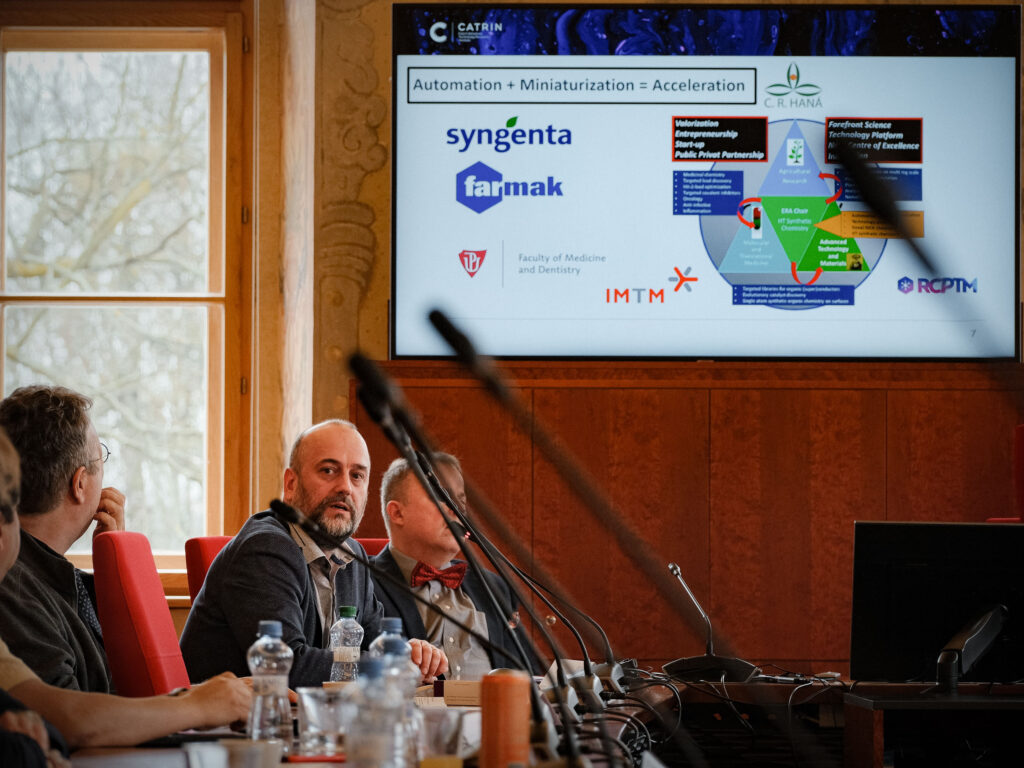
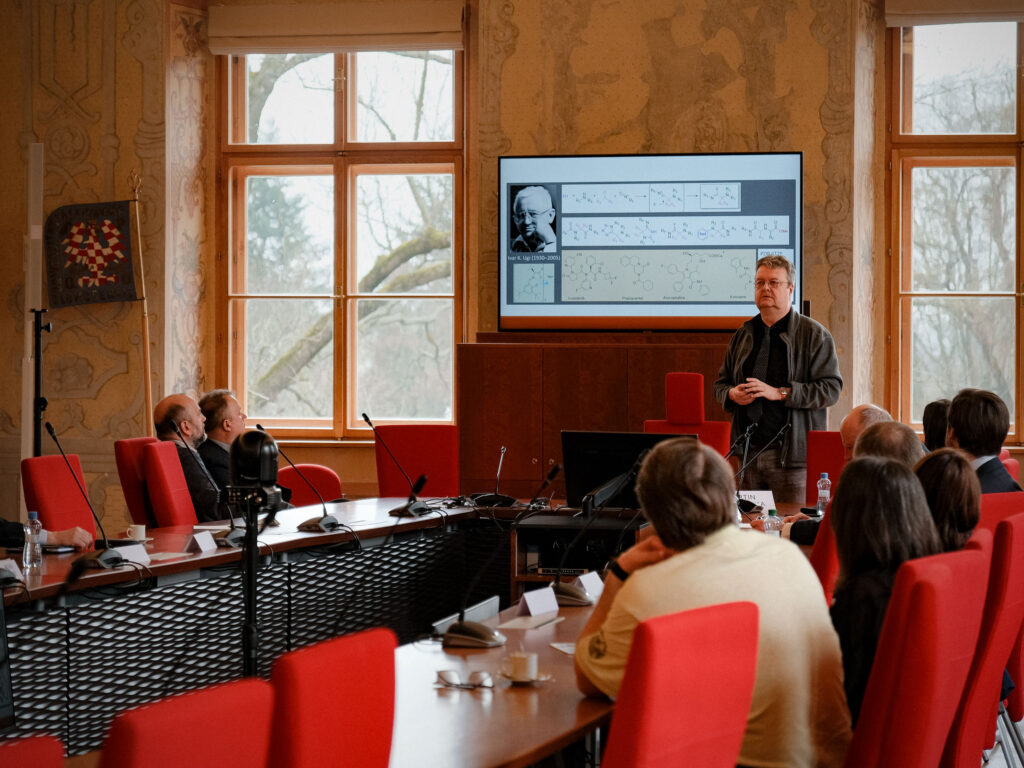
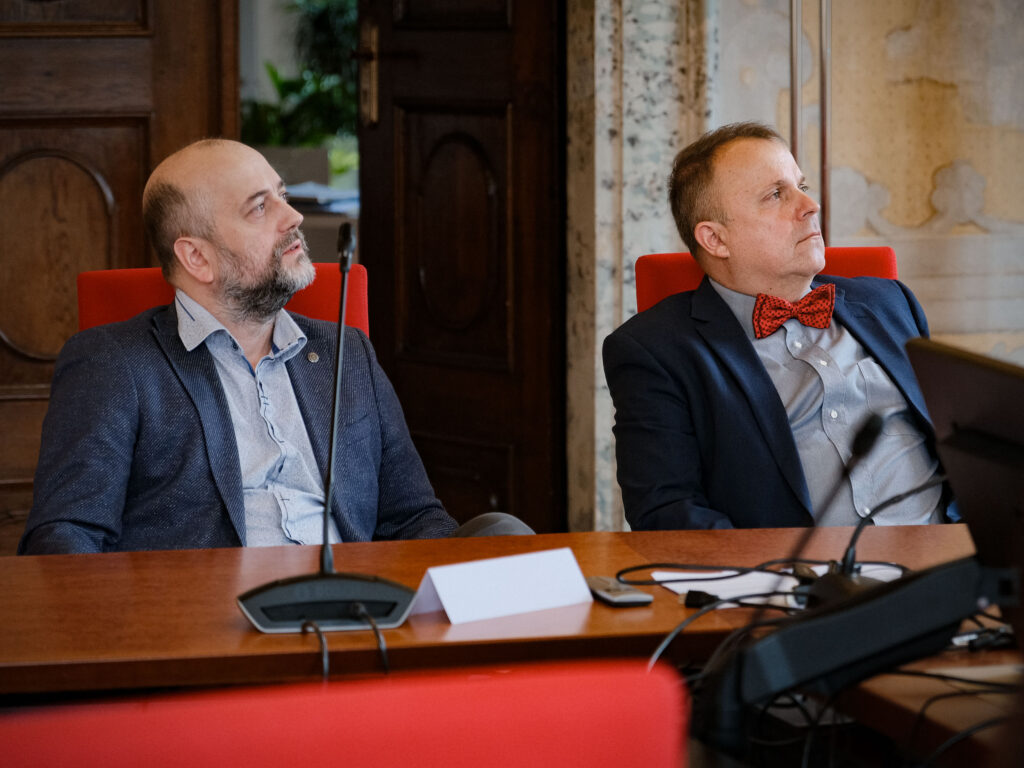
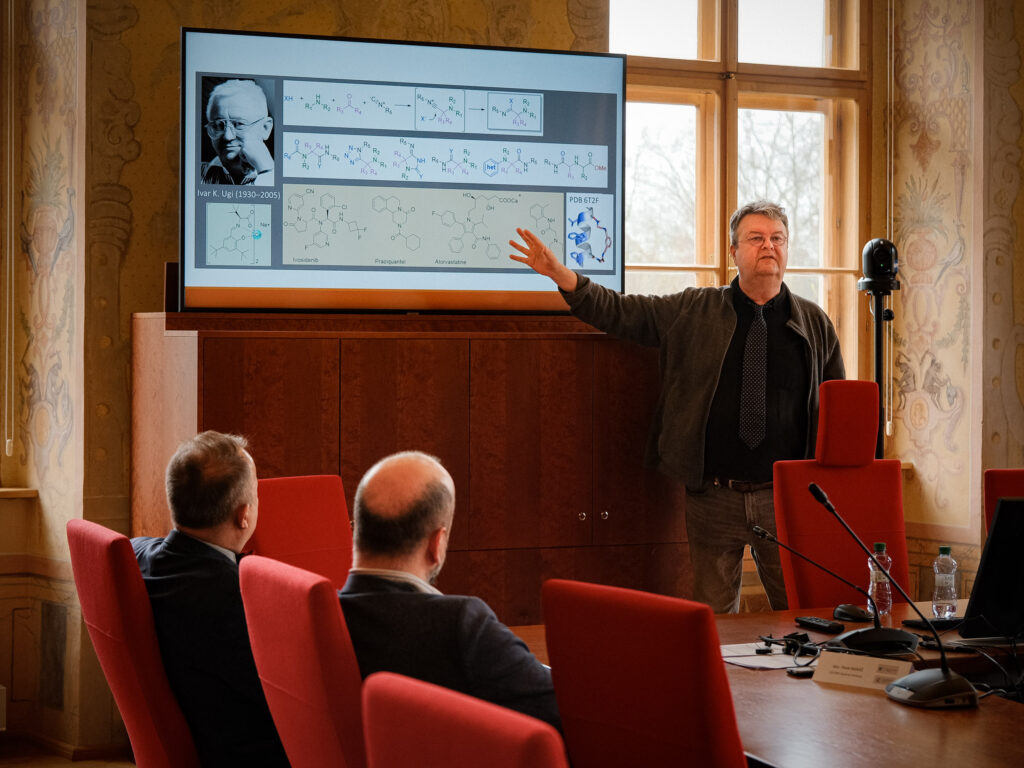
The idea of the AMADEUS project dates back more than 30 years ago when Dömling, as a then postdoc, initiated his first start-up company. In the forefront of technology development is the integration of chemistry automation, high throughput screening and compound optimization using artificial intelligence aimed to dramatically accelerate early drug discovery. In the new version of AMADEUS, highly miniaturization and automation of synthetic chemistry through acoustic droplet ejection technology is a key point, which was introduced by Dömling and his group in 2019.
AMADEUS (Automated, MiniAturizeD, and acceleratEd drUg diScovery) can find application in not only medical chemistry, but also catalysis and the tuning of materials or plants properties.
The issue of miniaturisation and automation, which lead to sustainable chemistry and at the same time contribute to more efficient development of new pharmaceuticals, nanomaterials or for example plant protection substances, is also addressed by Professor Dömling at CATRIN within the European ERA Chair ACCELERATOR project. The main pillar of his research is multi-component organic reactions, which allow preparation and testing of tens of thousands of chemicals in a highly economical and diverse fashion.
“The two projects are complementary and will enable me to accelerate my research. I believe AMADEUS will represent a significant step towards achieving sustainability in research and development and will support innovation and progress in various scientific fields,” added Dömling.
Professor Dömling is the first recipient of the prestigious ERC Advanced grant at Palacký University. This grant focus on supporting internationally recognized experts who have already established themselves in the field and have demonstrably influenced it. Besides, the physical chemist Michal Otyepka has been successful in the stiff ERC competition in the past, even four times (three of them in the Proof-of-Concept category, which supports successful ERC grant awardees in the earliest phase of commercialization of the outputs of their research activities). Both scientists work at CATRIN.
Prof. Alexander Dömling, Ph.D.
In the first decade of his professional life, he studied chemistry and biology at the Technical University of Munich. He received his doctorate under the supervision of the world-famous scientist Ivar Ugi. Then he spent his postdoctoral period with the two-time Nobel laureate K. Barry Sharpless at the Scripps Research Institute in California.
In the next period, he worked at the University of Pittsburgh, where he received several large project grants and gained experience in computational and structural biology, which he used, for example, in drug design. Subsequently, he worked as head of the Department of Drug Design at the University of Groningen, where he assembled a team of about 30 students and co-workers.
Professor Dömling has extensive experience in the commercialization of research results. He has obtained more than 70 patents and co-founded six biotechnology companies.

